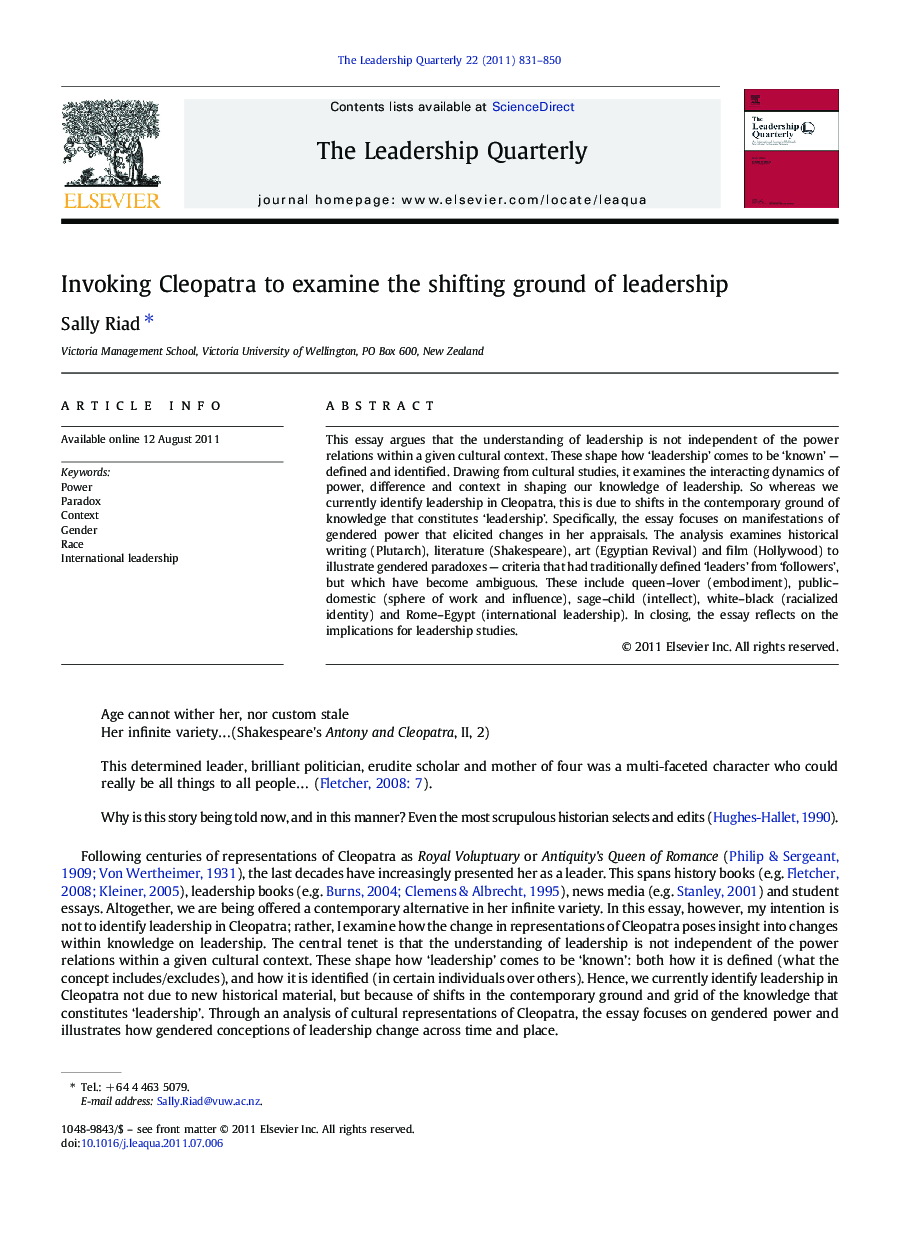| Article ID | Journal | Published Year | Pages | File Type |
|---|---|---|---|---|
| 888124 | The Leadership Quarterly | 2011 | 20 Pages |
This essay argues that the understanding of leadership is not independent of the power relations within a given cultural context. These shape how ‘leadership’ comes to be ‘known’ — defined and identified. Drawing from cultural studies, it examines the interacting dynamics of power, difference and context in shaping our knowledge of leadership. So whereas we currently identify leadership in Cleopatra, this is due to shifts in the contemporary ground of knowledge that constitutes ‘leadership’. Specifically, the essay focuses on manifestations of gendered power that elicited changes in her appraisals. The analysis examines historical writing (Plutarch), literature (Shakespeare), art (Egyptian Revival) and film (Hollywood) to illustrate gendered paradoxes — criteria that had traditionally defined ‘leaders’ from ‘followers’, but which have become ambiguous. These include queen–lover (embodiment), public–domestic (sphere of work and influence), sage–child (intellect), white–black (racialized identity) and Rome–Egypt (international leadership). In closing, the essay reflects on the implications for leadership studies.
